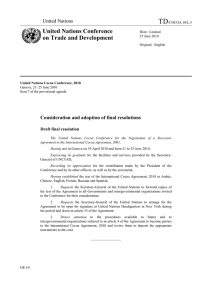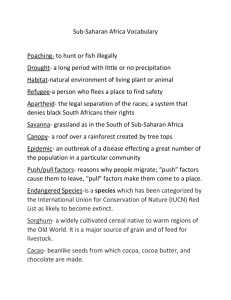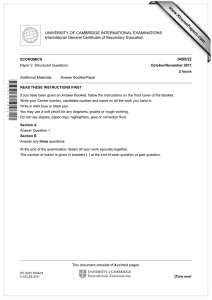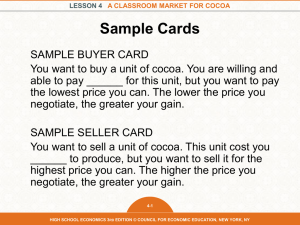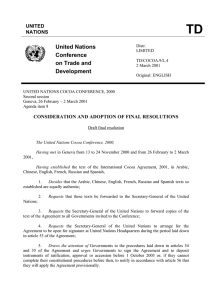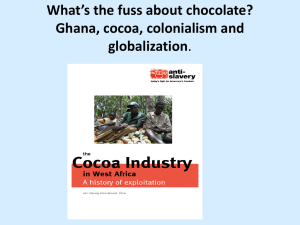www.XtremePapers.com UNIVERSITY OF CAMBRIDGE INTERNATIONAL EXAMINATIONS General Certificate of Education Ordinary Level 2281/22
advertisement
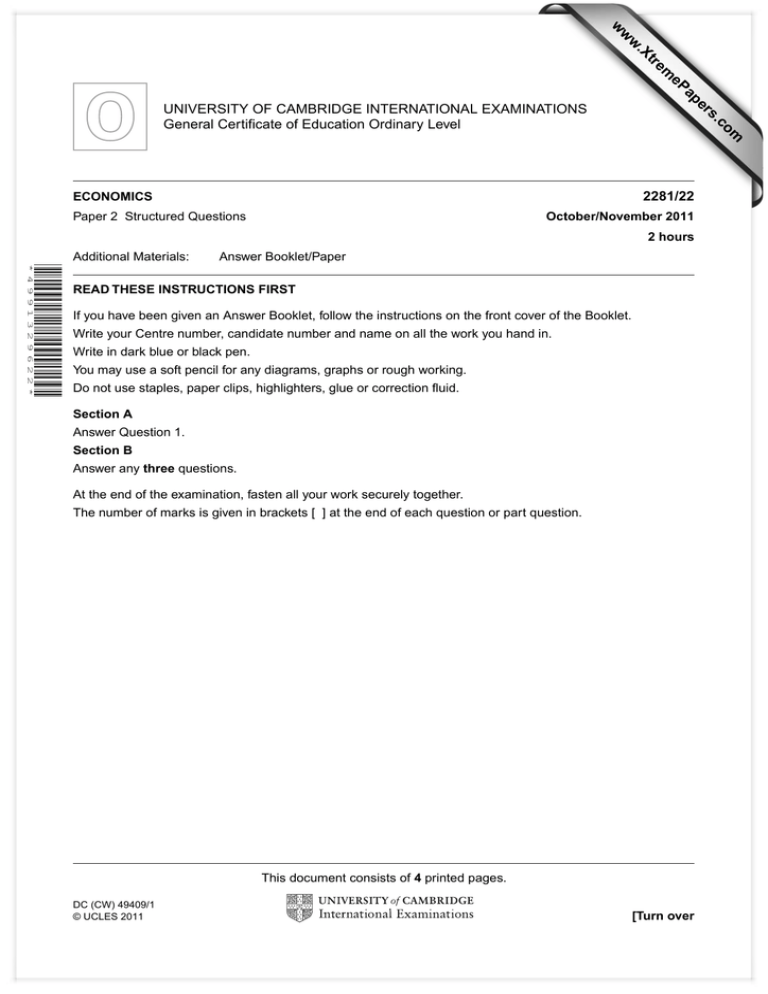
w w ap eP m e tr .X w om .c s er UNIVERSITY OF CAMBRIDGE INTERNATIONAL EXAMINATIONS General Certificate of Education Ordinary Level 2281/22 ECONOMICS Paper 2 Structured Questions October/November 2011 2 hours Additional Materials: Answer Booklet/Paper * 4 9 9 1 3 2 9 6 2 2 * READ THESE INSTRUCTIONS FIRST If you have been given an Answer Booklet, follow the instructions on the front cover of the Booklet. Write your Centre number, candidate number and name on all the work you hand in. Write in dark blue or black pen. You may use a soft pencil for any diagrams, graphs or rough working. Do not use staples, paper clips, highlighters, glue or correction fluid. Section A Answer Question 1. Section B Answer any three questions. At the end of the examination, fasten all your work securely together. The number of marks is given in brackets [ ] at the end of each question or part question. This document consists of 4 printed pages. DC (CW) 49409/1 © UCLES 2011 [Turn over 2 Section A Answer this question. 1 The struggles of the Ivory Coast’s cocoa farmers Cocoa prices have hit a 30-year high due to demand exceeding supply. Production of cocoa in the Ivory Coast, which provides about a third of the world’s cocoa beans, has fallen as a result of poor weather and under-investment in the industry. The 2009 harvest was badly affected by dry weather, pests and disease. A spokesperson at the International Cocoa Organisation commented, “We have now had three consecutive years of supply declining. With current production methods, the Ivory Coast has reached maximum output. Farmers don’t use many chemicals and pesticides. They need to invest more in chemicals and other farming techniques to increase their yields.” The demand for cocoa has continued to grow. The fashion for more expensive, high-quality chocolate has helped to increase demand as it typically has a higher cocoa content. A spokesperson from the Fair Trade Association commented, “The large, unpredictable fluctuations in the cocoa market make life extremely difficult for farmers.” The Government of the Ivory Coast is planning to create greater stability in the cocoa market by regulating the industry. It is thinking of selling the cocoa itself and also fixing the price. If the government fixed the price for cocoa, the farmers would be less vulnerable to fluctuations in prices due to changes in demand and supply factors. (a) (i) State one reason for the increase in demand for cocoa. [1] (ii) State two reasons for the decrease in supply of cocoa. [2] (b) Explain, using a demand and supply diagram, how the changes in the demand for and the supply of cocoa have affected the equilibrium price and equilibrium quantity in the cocoa market. [6] (c) Explain why the large, unpredictable fluctuations in the cocoa market make life difficult for cocoa farmers. [3] (d) Discuss whether an economy would benefit from its government intervening to regulate an industry. [8] © UCLES 2011 2281/22/O/N/11 3 Section B Answer any three questions from this section. 2 All countries face the basic economic problem in relation to the factors of production. One country might allocate more resources to education and health care than another, but there will always be an opportunity cost involved in such decisions. (a) Why do all countries face the basic economic problem? [4] (b) State and explain the factors of production. [4] (c) Define opportunity cost and explain why it is an important concept for economists. [4] (d) Discuss whether a government should allocate more resources to education and health care rather than other forms of expenditure. [8] 3 The Government of Bangladesh is planning to build a new motorway with the help of private companies. It recognises that there are a number of costs and benefits, both private and social, that need to be taken into account before a final decision is taken. (a) Explain what is meant by (i) a private cost, (ii) a private benefit, (iii) an external cost and (iv) an external benefit. [4] (b) For each of the following, identify one example of (i) a private cost, (ii) a private benefit, (iii) an external cost and (iv) an external benefit that might be involved in the building of a motorway. [4] 4 (c) Why might a government want to involve private companies in a motorway project? [4] (d) Discuss how nearby communities are likely to be affected by the building of a motorway. [8] Trade unions play a role in the New Zealand economy, but not every worker belongs to one. This is especially the case in small firms. (a) Describe the functions of a trade union. [4] (b) Why might some workers not belong to a trade union? [4] (c) Explain why small firms continue to exist in most economies. [4] (d) Discuss whether firms always benefit from growing larger. [8] © UCLES 2011 2281/22/O/N/11 [Turn over 4 5 The Government of Nigeria has a number of economic aims. One of these is to increase the rate of economic growth in the country. It recognises, however, that this aim could conflict with some of its other aims. (a) Describe what is meant by economic growth. [2] (b) State four economic aims a government may have, other than economic growth. [4] (c) Describe the policies that a government might adopt to increase the rate of economic growth in its country. [6] (d) Discuss whether economic growth conflicts with the achievement of the other government economic aims. [8] 6 There are over 200 countries in the world and they vary enormously in terms of their level of development and extent of poverty. Many of the developing countries have high rates of population growth. (a) Describe what an economist would need to know to decide whether a country should be classified as developed or not. [6] (b) Explain what influences a country’s birth rate. [6] (c) Discuss whether encouraging multi-national companies to set up in a country would reduce that country’s level of poverty. [8] 7 The World Trade Organisation aims to encourage free trade but, despite its best efforts, trade protection is still carried out by many countries. (a) Explain why countries specialise in producing different goods and services. [4] (b) Identify and describe two methods of trade protection which a government might use. [6] (c) Discuss whether the advantages of free trade are so great that no country should ever think about trying to protect its own industries. [10] Permission to reproduce items where third-party owned material protected by copyright is included has been sought and cleared where possible. Every reasonable effort has been made by the publisher (UCLES) to trace copyright holders, but if any items requiring clearance have unwittingly been included, the publisher will be pleased to make amends at the earliest possible opportunity. University of Cambridge International Examinations is part of the Cambridge Assessment Group. Cambridge Assessment is the brand name of University of Cambridge Local Examinations Syndicate (UCLES), which is itself a department of the University of Cambridge. © UCLES 2011 2281/22/O/N/11
